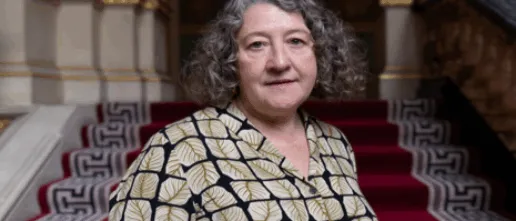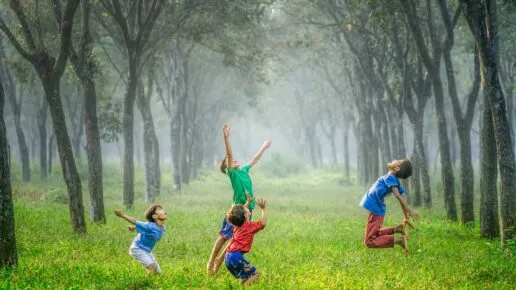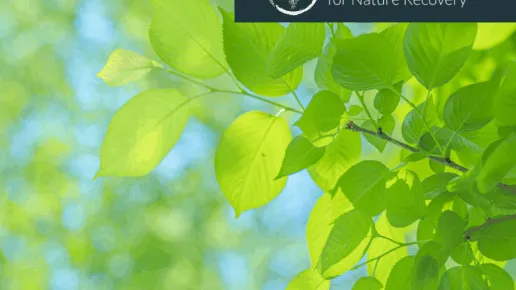About
Nature recovery at scale requires action by decision-makers at all levels of government, civic life and business. Nature recovery delivers multiple positive impacts for human society. The Centre’s expertise is contributing to nature-relevant debate in the realms of health and technology as well as agriculture and ecology.
Our researchers are working with policy-makers and organisations responsible for delivering nature recovery. We are making a compelling case for nature recovery that benefits human and more-than-human communities in a time of social, economic and political uncertainty.
Related News Articles

Why engaging with policy processes can help nature recovery
It’s not easy to work out the best way to give nature a real chance of recovery. It’s complicated, with technical, ecological, legal, financial and social factors all making their contributions. My work as the Knowledge Exchange specialist for the Leverhulme Centre for Nature Recovery means that I have to try to find a way […]

Our response to Defra’s consultation on improving the implementation of Biodiversity Net Gain for minor, medium and brownfield development
We raise concerns about the effect that the proposed changes will have on the demand for units on the off-site BNG market, based on research into the outcomes of the off-site market, & highlight the potential for worsening ecological outcomes from the changes proposed to the Small Sites Metric.

Lecture by Ruth Davis OBE, UK’s first Special Representative for Nature
This event was organised by the Oxford Sustainable Finance Group, the Leverhulme Centre for Nature Recovery and FinBio.
Related Outputs
Consultation response: a biodiversity metric for Scotland’s planning system
This response highlights how a biodiversity metric could support Scotland’s unique habitats and nature. It brings together evidence from the application of a statutory biodiversity metric in England to recommend a revised approach for a Scottish context. It draws on evidence from across the Leverhulme Centre for Nature Recovery’s research community.
Consultation response: White Paper on environmental principles, governance and biodiversity targets
Focusing on the Welsh Government’s proposal for a ‘nature positive’ headline target, this response explores how supporting well-functioning ecosystem would be essential to achieve the objective of reversing biodiversity decline and then moving to a recovery of natural systems.
Mapping niches of extension service providers to support nature recovery – a policy briefing
This policy brief sets out the role of agricultural extension services in supporting landscape-scale nature recovery through a novel method of mapping organisational niches and conflicts in service provision. It uses an example of advice on water pollution, and proposes changes to the provision of advice by organisations.
The role of natural capital in the green economy: LCNR response
The House of Commons’ Environmental Audit Committee launched an inquiry, ‘The role of natural capital in the green economy’, in August 2023. The Leverhulme Centre for Nature Recovery submitted a response, written by Dr Sophus zu Ermgassen. Our submission proposed: An accelerated timetable to agree and implement independent evaluation systems (particularly on-site gains for BNG) […]
Response to the consultation from the Department for Energy Security and Net Zero on the implementation of the UK government’s principles for voluntary carbon and nature market integrity
Comments from the Leverhulme Centre for Nature Recovery
Embedding nature recovery in the Levelling-up and Regeneration Bill Agile Initiative Research Brief
This research brief compiles evidence from the academic literature to demonstrate the vital role that nature can plan in securing health, well-being, and socio-economic benefits for the deprived communities targeted by the levelling-up programme.
A compass toward a thriving and resilient Oxfordshire, the Oxfordshire Doughnut project, final report to Oxfordshire County Council
This report represents the first steps toward an Oxfordshire re-imagining economics to serve thriving futures - a future where the needs of all citizens are met
The UK nature finance ecosystem: status and opportunities for scale
This report reviews the current state of nature finance in the UK, the ecosystem of actors involved and the enabling environment to scale finance, including the role of blended finance. The report acts as a primer to inform future research toward policy recommendations.
Leading from the front. The Role of the Public Sector in Delivering Nature Recovery
This report sets out an expert opinion on how Government should approach the issues of funding and financing nature recovery in England. The research takes as its starting point the essential importance of nature recovery and the headwinds so far experienced in achieving it. Taking account of the growing expectation that new nature markets will […]
Oxfordshire’s greenspace-deprived neighbourhoods
Coordinating author: Martha Crockatt This report explores Natural England’s Green Infrastructure data to identify neighbourhoods in Oxfordshire experiencing both socio-economic deprivation and poor provision of accessible greenspace, with a view to these neighbourhoods being prioritised in terms of planning, allocation of funding, and effort for improving quality and quantity of accessible greenspace. Contributors: Matt Witney […]
Large-scale social surveys on people and nature relations: Report on the state of the art in the UK
Jasper Montana, Clare Ferguson and Tom Marshall Collecting reliable and consistent data about people’s relationship with the natural environment is likely to be crucial to effective policy delivery by governments. Social surveys are a prominent tool in delivering this insight. In the UK, surveys on people’s relationship with nature are run by government bodies, nongovernmental […]
DLUHC Science Seminar Series Sheds Light on how to build Trust and Inclusion for Thriving Communities
In an enlightening seminar titled “How to build standards of trust, accountability, and inclusion for sustainable places,” Leverhulme Centre for Nature Recovery and Agile Initiative researchers Dr. Caitlin Hafferty and Dr. Mark Hirons shared their insights with the Department of Levelling Up, Housing and Community (DLUHC). The seminar, part of the DLUHC 2023 Science Seminar Series, aimed to bridge […]



